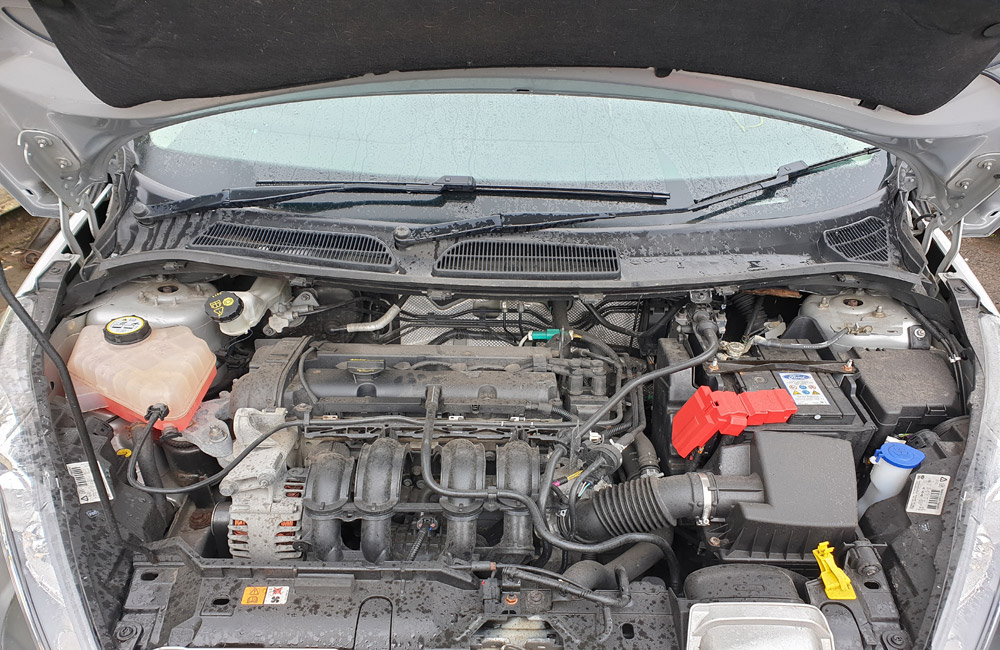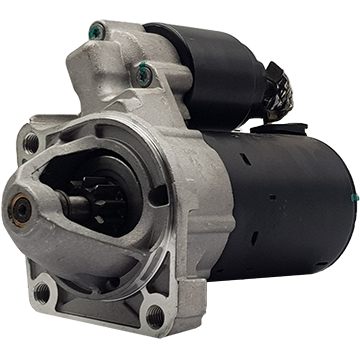Why Choosing the Right Ford Fiesta Engine Parts Matters for Longevity
Why Choosing the Right Ford Fiesta Engine Parts Matters for Longevity
Blog Article
Opening the Power of Engines: A Comprehensive Guide to Performance and Efficiency
Recognizing the intricate auto mechanics of engines is essential for both efficiency fanatics and daily motorists. The solutions might redefine our approach to engine efficiency and efficiency in methods that are both informing and crucial.
Understanding Engine Essentials
What makes up the essential technicians of an engine? At its core, an engine is a maker developed to transform fuel right into mechanical power through a collection of controlled explosions or burning procedures.
The crankshaft after that transforms this direct movement right into rotational energy, which ultimately powers the car. The camshaft manages the opening and closing of the shutoffs, managing the consumption of air and fuel and the expulsion of exhaust gases. In addition, the engine relies upon a very carefully adjusted fuel-air blend, ignition system, and cooling down system to ensure ideal performance and effectiveness.
Comprehending engine essentials also involves acknowledging the relevance of engine cycles, such as the four-stroke cycle, that includes intake, power, exhaust, and compression strokes. Each phase is vital in making sure the engine functions efficiently and properly. Proficiency of these basic mechanics prepares for exploring more complicated engine characteristics and performance metrics, vital for enhancing both power output and performance.
Key Performance Metrics
Secret efficiency metrics are crucial for evaluating an engine's effectiveness and power result, supplying valuable understandings for both suppliers and consumers. These metrics work as standards for engine efficiency, enabling educated decisions in production, getting, and design.
Among the primary metrics is horsepower, which evaluates the engine's ability to carry out job over time. Torque, measured in pound-feet, is an additional essential metric that shows the engine's rotational pressure, straight impacting acceleration and hauling capability. Gas performance, usually gauged in miles per gallon (MPG) or liters per 100 kilometers (L/100km), evaluates exactly how effectively the engine converts gas into movement, impacting operational expenses and environmental factors to consider.
Additionally, thermal efficiency procedures exactly how well an engine transforms gas power right into useful job, disclosing insights right into power losses mostly via warmth. Discharge degrees, including CO2 and NOx, are also important, mirroring the engine's environmental influence and conformity with regulative standards.

Tuning Strategies for Efficiency
Tuning methods play a considerable role in boosting engine performance by maximizing efficiency metrics determined in earlier discussions (ford fiesta engine). Different methods exist to make improvements an engine, each adding to improved gas economic climate and lowered discharges
One efficient method is changing the air-fuel proportion, making sure the engine runs within the ideal burning regimen. A leaner mix can enhance fuel effectiveness, yet it has to be balanced to stop misfires or engine knock. In addition, reprogramming the engine monitoring system can rectify specifications such as ignition timing, which additionally boosts performance while maintaining power output.
An additional essential method involves changing the consumption and exhaust systems. Updating to high-performance air filters and exhaust headers can lower back pressure, promoting far better air flow. This permits the engine to breathe even more freely, resulting in boosted burning effectiveness.
Additionally, the implementation of innovative tuning devices, like dyno screening, supplies accurate data that makes it possible for targeted adjustments. On a regular basis keeping track of these efficiency metrics ensures that tuning initiatives yield the preferred efficiency results. Collectively, these methods not only bolster engine performance however likewise contribute to long-lasting sustainability in engine procedures.
Upkeep for Optimum Performance
Normal engine maintenance is vital for attaining optimum efficiency and long life. A well-maintained engine not just runs efficiently yet additionally decreases the threat of pricey repair services and breakdowns. Secret parts calling for normal interest include oil, filters, belts, and spark plugs.
Altering the engine oil at advised intervals is vital, as oil lubricates moving components and avoids overheating. Similarly, replacing oil and air filters makes certain that contaminants do not hinder engine feature. redirected here Disregarding these parts can result in reduced effectiveness and prospective engine damages.
Furthermore, evaluating and replacing worn belts and hose pipes is crucial to stop abrupt failings. Timing belts, particularly, must be changed according to the manufacturer's routine to prevent devastating engine damage.
Flicker plugs ought to also be inspected and replaced as essential, because they play a crucial role in ignition and gas performance.
Future Patterns in Engine Technology
Embracing my company advancements in modern technology, the future of engine style is positioned to change performance and effectiveness throughout various applications. Among one of the most substantial fads is the shift towards electrification. Hybrid and completely electric powertrains are ending up being increasingly mainstream, supplying reduced exhausts and improved fuel effectiveness. This shift is not just a fad however a necessity driven by regulative stress and customer demand for sustainable options.
Additionally, innovations in materials scientific research are causing lighter, more powerful elements that boost engine performance while decreasing energy usage. Advanced production strategies, such as 3D printing, permit for the creation of complicated geometries that enhance air flow and thermal administration, hence maximizing burning processes.
In addition, the integration of man-made intelligence and equipment understanding is readied to change engine diagnostics and performance tuning. These technologies can examine huge amounts of information in actual time, making it possible for anticipating upkeep and customized performance improvements.
Final Thought
Finally, opening the power of engines needs a detailed understanding of their technicians and efficiency metrics. Implementing effective tuning methods and adhering to normal upkeep methods substantially improve engine abilities. As the auto landscape progresses, welcoming future trends in innovation, including electrification and progressed production, will be essential for maximizing efficiency and effectiveness. This detailed method not just benefits fanatics but additionally adds to lasting options in the realm of vehicle design.
Additionally, the engine counts on a thoroughly calibrated fuel-air mix, ignition system, and cooling system to make certain optimum efficiency and performance.
Comprehending engine basics also includes acknowledging the relevance of engine cycles, such as the four-stroke cycle, which includes intake, power, compression, and exhaust strokes. Mastery of these basic mechanics lays the groundwork for exploring extra intricate engine characteristics and efficiency navigate to this website metrics, crucial for maximizing both power output and performance.

Accepting developments in technology, the future of engine style is poised to transform efficiency and effectiveness throughout numerous applications.
Report this page